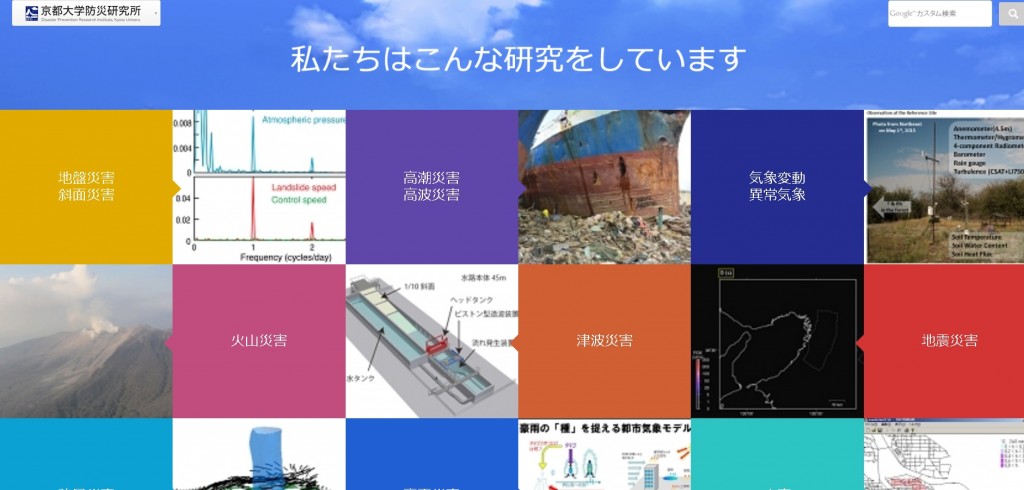The United Nations (UN) announced the winners of the “Big Data Climate Challenge” today, revealing that a project titled “Big Earth Observation Data for Climate Change Research” by the Institute of Remote Sensing and Digital Earth (RADI), Chinese Academy of Sciences (CAS), was selected for “Projects to Watch”, projects designed to highlight particularly innovative uses of big data in emerging topics and geographic regions. Among the seven “Projects to Watch” in this competition, the RADI project was the only one from China. RADI, CAS currently serves as the institution hosting the Integrated Research on Disaster Risk, International Programme Office (IRDR IPO) in Beijing, China.
The Big Data Climate Challenge is a global competition hosted by United Nations Global Pulse, an initiative of the Secretary-General on big data. The Challenge was launched in May 2014 to unearth fresh evidence of the economic dimensions of climate change around the world using data and analytics. Submissions were received from 40 countries, representing more than 20 topics from forestry, biodiversity and transportation to renewable energy and green data centers.
 Two overall Big Data Climate Challenge winners and seven “Projects to Watch” were selected by a high-level Advisory Board and Technical Committee of global experts in climate science, sustainable development and big data. Both of the Big Data Climate Challenge Winners and the “Projects to Watch” will be featured on the UN Climate Summit website.
Two overall Big Data Climate Challenge winners and seven “Projects to Watch” were selected by a high-level Advisory Board and Technical Committee of global experts in climate science, sustainable development and big data. Both of the Big Data Climate Challenge Winners and the “Projects to Watch” will be featured on the UN Climate Summit website.
“Big Earth Observation Data for Climate Change Research” originated from a National Basic Research Program of China (973 Program) project titled “Earth Observation for Sensitive Factors of Global Change: Mechanisms and Methodologies” (2008—2013), which was undertaken by RADI in partnership with other Chinese institutes and universities. Prof. GUO Huadong from RADI serves as the chief scientist for this project.
Based on huge and abundant datasets obtained from four synchronous satellite-aerial-ground observation experiments on the Tibetan Plateau and the Bohai Rim of China, the project aims to explore new theories, technologies and methods for climate change studies through Earth observation data; develop an assimilation model using multi-source heterogeneous spatial data; acquire characteristics of the sensitive factors of climate change; develop a simulation platform for regional climate change studies; and conduct conceptual research on global change scientific satellites and observation stations on the Moon.
The experiment has reaped fruitful results. The datasets obtained from the experiments contribute to national policy-making in climate change and sustainable development. The project also led to the publication of 443 research papers, among which 202 are SCI indexed and many widely cited. Six articles were especially cited by the IPCC 5th Assessment Report and made academic contributions to climate change research.
Below are the full list of Big Data Climate Challenge Winners:
Big Data Climate Challenge Winners:
- Global Forest Watch (GFW) is a dynamic forest monitoring system from the World Resources Institute and partners: GFW empowers people to manage forests by combining satellite imaging, open data and crowdsourcing for open access to timely information about forests by governments, companies, NGOs and the public.
- Climate-smart, site-specific agriculture decision-making tool for Colombian rice farmers by the Site-Specific Agriculture Big Data Team at the International Center for Tropical Agriculture (CIAT): Using harvest monitoring data with climate data and seasonal forecasts, farming recommendations for rice growers are generated as a first step toward a system to support decision-making for farmers.
“Projects to Watch”:
- “Urban services monitoring (UrSMS)” by development consultancy Taru in collaboration with Surat Municipal Corporation and Urban Health Climate Resilience Center (UHCRC) in India (project site)
- “Big Earth Observation Data for Climate Change Research” by a research team at Institute of Remote Sensing and Digital Earth, Chinese Academy of Sciences (project site)
- “Using Big Data and Google Directions to show CO2 Emissions from Transport” by researchers at University of Skopje Faculty of Computer Science and Engineering and UNDP Macedonia (project site)
- “Development under Climate Change (DUCC),” an application of the Systematic Analysis of Climate Resilient Development (SACRED) framework to quantify economic impacts of climate change in South Africa submitted by United Nations University WIDER in Finland
- “SmartSpaces” energy monitoring system in municipal buildings by Bristol City Energy Services in the UK as part of a European initiative implemented in 11 cities (project site)
- “Data and Computational Tools to Build Low-Carbon, Sustainable Energy Systems” by a research team at Renewable and Appropriate Energy Lab at University of California Berkeley with projects implemented in United States, South America and Asia
- “Megacities Carbon Project” by a research team from NASA Jet Propulsion Laboratory (JPL), National Institute of Standards and Technology (NIST), Arizona State University, Laboratoire des Sciences du Climat et de l’Environnement (LSCE), Resources for the Future, National Oceanic and Atmospheric Administration (NOAA), California Institute of Technology, Scripps Institution of Oceanography, and the California Air Resources Board (project site)
Source: RADI/CAS and United Nations Global Pulse





